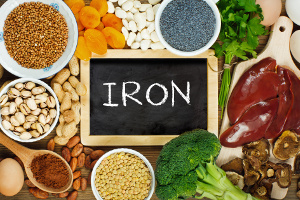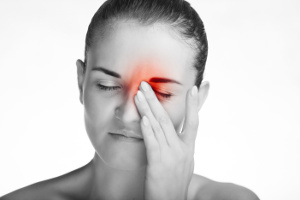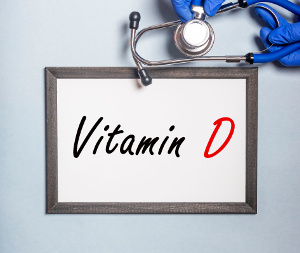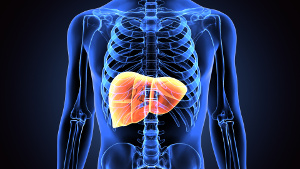| 1 x afterRenderComponent com_content (1.27MB) (36.78%) | 57.05ms |
| 1 x afterRenderRawModule mod_articles_category (READ MORE...) (84.63KB) (21.64%) | 33.57ms |
| 1 x afterRenderRawModule mod_tags_popular (Search) (10.12KB) (13.14%) | 20.38ms |
| 1 x afterInitialise (1.28MB) (7.06%) | 10.95ms |
| 1 x afterRender (311.87KB) (2.96%) | 4.60ms |
| 1 x beforeRenderRawModule mod_articles_category (READ MORE...) (383.51KB) (2.91%) | 4.51ms |
| 1 x afterRoute (856.09KB) (2.89%) | 4.48ms |
| 1 x beforeRenderRawModule mod_custom (Chronic fatigue tied Alan to his bed but Q10 capsules saved him:) (260.6KB) (1.97%) | 3.06ms |
| 1 x afterRenderRawModule mod_languages (Sprogskift) (32.3KB) (1.31%) | 2.03ms |
| 1 x afterRenderRawModule mod_finder () (150.16KB) (1.25%) | 1.94ms |
| 1 x afterRenderRawModule mod_menu (Main menu-US) (152.04KB) (1.18%) | 1.83ms |
| 1 x afterDispatch (17.53KB) (0.95%) | 1.47ms |
| 1 x afterLoad (456.45KB) (0.6%) | 936μs |
| 1 x afterRenderRawModule mod_custom () (26.51KB) (0.55%) | 851μs |
| 1 x beforeRenderRawModule mod_menu (Main menu-US) (20.94KB) (0.46%) | 712μs |
| 1 x Before Access::preloadComponents (all components) (68.65KB) (0.46%) | 707μs |
| 1 x afterRenderRawModule mod_languages (Sprogskift Mobil) (3.89KB) (0.42%) | 657μs |
| 1 x afterRenderRawModule mod_menu (Main menu-US) (5.8KB) (0.41%) | 639μs |
| 1 x After Access::preloadComponents (all components) (98.44KB) (0.39%) | 600μs |
| 1 x afterRenderRawModule mod_finder () (6.29KB) (0.33%) | 507μs |
| 1 x beforeRenderModule mod_articles_category (READ MORE...) (21.32KB) (0.28%) | 433μs |
| 1 x beforeRenderComponent com_content (35.35KB) (0.24%) | 367μs |
| 1 x afterRenderRawModule mod_custom (Remember to download Heart Healthy Seniors) (4.22KB) (0.13%) | 194μs |
| 1 x beforeRenderRawModule mod_custom () (8.66KB) (0.11%) | 173μs |
| 1 x afterRenderRawModule mod_custom () (904B) (0.09%) | 145μs |
| 1 x beforeRenderRawModule mod_custom () (6.62KB) (0.09%) | 138μs |
| 1 x beforeRenderRawModule mod_menu (Main menu-US) (5.07KB) (0.06%) | 99μs |
| 1 x afterRenderRawModule mod_custom () (896B) (0.06%) | 96μs |
| 1 x beforeRenderRawModule mod_custom () (688B) (0.05%) | 84μs |
| 1 x afterRenderModule mod_custom (Chronic fatigue tied Alan to his bed but Q10 capsules saved him:) (1.3KB) (0.05%) | 80μs |
| 1 x afterRenderModule mod_menu (Main menu-US) (4.36KB) (0.04%) | 67μs |
| 1 x afterRenderRawModule mod_custom (Chronic fatigue tied Alan to his bed but Q10 capsules saved him:) (960B) (0.04%) | 56μs |
| 1 x After Access::getAssetRules (id:8 name:com_content) (7.05KB) (0.03%) | 49μs |
| 1 x afterRenderModule mod_custom () (1.23KB) (0.03%) | 49μs |
| 1 x afterRenderModule mod_articles_category (READ MORE...) (1.25KB) (0.03%) | 48μs |
| 1 x afterRenderModule mod_menu (Main menu-US) (1.25KB) (0.03%) | 42μs |
| 1 x afterRenderModule mod_finder () (1.23KB) (0.03%) | 42μs |
| 1 x afterRenderModule mod_custom (Cholesterol-lowering without side effects:) (1.28KB) (0.02%) | 38μs |
| 1 x afterRenderRawModule mod_custom (Cholesterol-lowering without side effects:) (2.19KB) (0.02%) | 34μs |
| 1 x afterRenderModule mod_finder () (5.79KB) (0.02%) | 34μs |
| 1 x afterRenderModule mod_tags_popular (Search) (1.27KB) (0.02%) | 32μs |
| 1 x afterRenderModule mod_languages (Sprogskift Mobil) (1.27KB) (0.02%) | 31μs |
| 1 x afterRenderModule mod_custom (Remember to download Heart Healthy Seniors) (1.3KB) (0.02%) | 29μs |
| 1 x afterRenderRawModule mod_custom (Get additionel and more detailed knowledge ) (1.67KB) (0.02%) | 27μs |
| 1 x afterRenderModule mod_custom (Get additionel and more detailed knowledge ) (1.3KB) (0.02%) | 26μs |
| 1 x afterRenderModule mod_custom (BOOST YOUR IMMUNE DEFENSE) (1.28KB) (0.02%) | 26μs |
| 1 x afterRenderModule mod_custom (Exercise) (1.25KB) (0.02%) | 26μs |
| 1 x afterRenderModule mod_custom (Check this before you buy a Q10 product) (1.28KB) (0.02%) | 26μs |
| 1 x beforeRenderRawModule mod_tags_popular (Search) (4.81KB) (0.02%) | 25μs |
| 1 x beforeRenderRawModule mod_custom (Remember to download Heart Healthy Seniors) (816B) (0.02%) | 25μs |
| 1 x afterRenderModule mod_custom (Are you taking supplements) (1.28KB) (0.02%) | 25μs |
| 1 x afterRenderModule mod_custom (Antiaging) (1.27KB) (0.02%) | 25μs |
| 1 x afterRenderModule mod_custom () (2.43KB) (0.02%) | 25μs |
| 1 x beforeRenderRawModule mod_languages (Sprogskift) (3.44KB) (0.01%) | 23μs |
| 1 x afterRenderRawModule mod_custom (BOOST YOUR IMMUNE DEFENSE) (928B) (0.01%) | 22μs |
| 1 x afterRenderModule mod_custom () (2.71KB) (0.01%) | 21μs |
| 1 x afterRenderModule mod_languages (Sprogskift) (5.31KB) (0.01%) | 21μs |
| 1 x afterRenderRawModule mod_custom (Are you taking supplements) (1.03KB) (0.01%) | 20μs |
| 1 x beforeRenderModule mod_tags_popular (Search) (5.17KB) (0.01%) | 20μs |
| 1 x beforeRenderRawModule mod_custom (Cholesterol-lowering without side effects:) (368B) (0.01%) | 19μs |
| 1 x afterRenderRawModule mod_custom (Check this before you buy a Q10 product) (944B) (0.01%) | 18μs |
| 1 x afterRenderRawModule mod_custom (Antiaging) (1.02KB) (0.01%) | 18μs |
| 1 x afterRenderRawModule mod_custom (Exercise) (1.02KB) (0.01%) | 17μs |
| 1 x beforeRenderModule mod_custom (Remember to download Heart Healthy Seniors) (1.17KB) (0.01%) | 16μs |
| 1 x Before Access::getAssetRules (id:8 name:com_content) (1.13KB) (0.01%) | 15μs |
| 1 x beforeRenderRawModule mod_languages (Sprogskift Mobil) (912B) (0.01%) | 15μs |
| 1 x beforeRenderModule mod_custom (Are you taking supplements) (352B) (0.01%) | 14μs |
| 1 x beforeRenderModule mod_custom (Get additionel and more detailed knowledge ) (368B) (0.01%) | 14μs |
| 1 x beforeRenderModule mod_custom (BOOST YOUR IMMUNE DEFENSE) (224B) (0.01%) | 14μs |
| 1 x beforeRenderModule mod_custom (Exercise) (336B) (0.01%) | 13μs |
| 1 x beforeRenderModule mod_custom (Antiaging) (336B) (0.01%) | 13μs |
| 1 x beforeRenderModule mod_custom (Check this before you buy a Q10 product) (352B) (0.01%) | 13μs |
| 1 x beforeRenderRawModule mod_custom (Get additionel and more detailed knowledge ) (752B) (0.01%) | 12μs |
| 1 x beforeRenderRawModule mod_finder () (6.34KB) (0.01%) | 12μs |
| 3 x beforeRenderModule mod_custom () (704B) (0.01%) | 11μs |
| 1 x beforeRenderRawModule mod_custom (BOOST YOUR IMMUNE DEFENSE) (608B) (0.01%) | 10μs |
| 1 x beforeRenderRawModule mod_custom (Exercise) (720B) (0.01%) | 9μs |
| 1 x beforeRenderRawModule mod_custom (Check this before you buy a Q10 product) (752B) (0.01%) | 9μs |
| 2 x beforeRenderModule mod_finder () (704B) (0.01%) | 9μs |
| 1 x beforeRenderRawModule mod_custom (Are you taking supplements) (736B) (0.01%) | 9μs |
| 1 x beforeRenderRawModule mod_finder () (2.3KB) (0.01%) | 9μs |
| 1 x beforeRenderRawModule mod_custom (Antiaging) (720B) (0.01%) | 8μs |
| 2 x beforeRenderModule mod_menu (Main menu-US) (720B) (0.01%) | 8μs |
| 1 x beforeRenderModule mod_languages (Sprogskift) (720B) (0%) | 6μs |
| 1 x beforeRenderModule mod_custom (Chronic fatigue tied Alan to his bed but Q10 capsules saved him:) (768B) (0%) | 5μs |
| 1 x beforeRenderModule mod_languages (Sprogskift Mobil) (720B) (0%) | 4μs |
| 1 x beforeRenderModule mod_custom (Cholesterol-lowering without side effects:) (752B) (0%) | 3μs |
 Lack of vitamin B12 is known to cause fatigue, poor memory, cognitive impairment, and hippocampal atrophy. Supplementation with B12, on the other hand, can improve cognitive functions, according to a study that is published in Nutrients. The problem is that the signs of cognitive disturbance are insidious and therefore not automatically associated with a simple nutrient deficiency that is often a result of ageing, vegetarian diets, low stomach acid, or diabetes medication.
Lack of vitamin B12 is known to cause fatigue, poor memory, cognitive impairment, and hippocampal atrophy. Supplementation with B12, on the other hand, can improve cognitive functions, according to a study that is published in Nutrients. The problem is that the signs of cognitive disturbance are insidious and therefore not automatically associated with a simple nutrient deficiency that is often a result of ageing, vegetarian diets, low stomach acid, or diabetes medication.







 If you are suffering from enervating fatigue, problems with concentrating, lack of energy, paleness, shortness of breath, dizziness, cold intolerance, recurrent infections, anemia, or problems with your skin, hair, and nails, you may be lacking iron and you should have it checked. It is primarily women of childbearing age, seniors, and vegans who lack this essential mineral, but even infants, teenagers, athletes, and people who drink a lot of milk may become iron-deficient. In this article, you can read more about how to get enough iron from your diet – regardless if you are a carnivore, pescetarian, or vegan. Also, you will find tips on how to increase your iron absorption.
If you are suffering from enervating fatigue, problems with concentrating, lack of energy, paleness, shortness of breath, dizziness, cold intolerance, recurrent infections, anemia, or problems with your skin, hair, and nails, you may be lacking iron and you should have it checked. It is primarily women of childbearing age, seniors, and vegans who lack this essential mineral, but even infants, teenagers, athletes, and people who drink a lot of milk may become iron-deficient. In this article, you can read more about how to get enough iron from your diet – regardless if you are a carnivore, pescetarian, or vegan. Also, you will find tips on how to increase your iron absorption. Magnesium deficiency can lead to various imbalances in the brain and nervous system and that can trigger a migraine attack. Magnesium also seems to help in the treatment of migraine, according to a review article published in Nutrients. As magnesium deficiencies are rather common, it makes perfect sense to consider taking a supplement. But it is important to choose a magnesium source that the body can easily absorb and utilize. Also, pay attention to other factors in the diet and environment that may help trigger migraine attacks.
Magnesium deficiency can lead to various imbalances in the brain and nervous system and that can trigger a migraine attack. Magnesium also seems to help in the treatment of migraine, according to a review article published in Nutrients. As magnesium deficiencies are rather common, it makes perfect sense to consider taking a supplement. But it is important to choose a magnesium source that the body can easily absorb and utilize. Also, pay attention to other factors in the diet and environment that may help trigger migraine attacks. Vitamin D is of vital importance to the unborn child’s development of teeth, bones, immune defense, and various other things. The fetus is highly dependent on the mother’s vitamin D levels and that the nutrient can be transferred to the fetus and activated. A team of scientists has looked closer at the placenta and its role in helping the fetus utilize vitamin D. They hope their work can contribute to healthier pregnancies in the future.
Vitamin D is of vital importance to the unborn child’s development of teeth, bones, immune defense, and various other things. The fetus is highly dependent on the mother’s vitamin D levels and that the nutrient can be transferred to the fetus and activated. A team of scientists has looked closer at the placenta and its role in helping the fetus utilize vitamin D. They hope their work can contribute to healthier pregnancies in the future. Selenium supports a host of different metabolic processes and serves as an antioxidant that protects our cells. According to recent studies, selenium also has anti-ageing properties that protect us against cardiovascular disease, cancer, dementia, and other age-related diseases. According to a review article published in Medical News Today, selenium also helps against impaired immunity and counteracts chronic inflammation, which is typically seen in connection with ageing processes. A Swedish study of healthy seniors has even showed that supplementation with selenium and Q10 has a positive effect on heart function, quality of life, and life expectancy.
Selenium supports a host of different metabolic processes and serves as an antioxidant that protects our cells. According to recent studies, selenium also has anti-ageing properties that protect us against cardiovascular disease, cancer, dementia, and other age-related diseases. According to a review article published in Medical News Today, selenium also helps against impaired immunity and counteracts chronic inflammation, which is typically seen in connection with ageing processes. A Swedish study of healthy seniors has even showed that supplementation with selenium and Q10 has a positive effect on heart function, quality of life, and life expectancy. Veganism is on the rise, and experts have different views on whether or not plant-diets are suited for children. A team of Polish scientists has now discovered that children on vegan diets have low stature and lower bone density than children who eat meat and dairy products. Children on vegan diets also are also more likely to lack amino acids, vitamin B12, vitamin D, vitamin A, iron, selenium, iodine, and the omega-3 fatty acid DHA (docosahexaenoic acid). It is particularly important for growing children to get enough nutrients to support their muscles, bones, brain, and a variety of enzyme processes. Also, children on vegan diets should be given relevant supplements to compensate for their shortcomings.
Veganism is on the rise, and experts have different views on whether or not plant-diets are suited for children. A team of Polish scientists has now discovered that children on vegan diets have low stature and lower bone density than children who eat meat and dairy products. Children on vegan diets also are also more likely to lack amino acids, vitamin B12, vitamin D, vitamin A, iron, selenium, iodine, and the omega-3 fatty acid DHA (docosahexaenoic acid). It is particularly important for growing children to get enough nutrients to support their muscles, bones, brain, and a variety of enzyme processes. Also, children on vegan diets should be given relevant supplements to compensate for their shortcomings. Vitamin D plays a major role in our health. The main focus, however, is on vitamin D’s importance for bones, while many health professionals are totally unaware of the nutrient’s other essential functions. According to a review article published in Nutrients, half the global population has low vitamin D levels in the blood, which increases the risk of cardiovascular disease, hypertension, cancer, type 2 diabetes, Alzheimer’s disease, respiratory infections like COVID-19, and early death. The authors also mention that vitamin D science is often inadequate or misleading because studies focus on supplementation rather than looking at blood levels of 25(OH)D. Consequently, trials are often made with far too small vitamin D doses or with too a short a trial period. In either case, blood levels of vitamin D fail to reach their optimum. What is more, levels of 25(OH)D in the blood should ideally be above 75 nmol/L in order to protect against cardiovascular disease, cancer, and early death. Because this threshold level is higher than the official threshold levels, the scientists recommend high-dosed vitamin D levels as a way to reach an optimal nutrient status.
Vitamin D plays a major role in our health. The main focus, however, is on vitamin D’s importance for bones, while many health professionals are totally unaware of the nutrient’s other essential functions. According to a review article published in Nutrients, half the global population has low vitamin D levels in the blood, which increases the risk of cardiovascular disease, hypertension, cancer, type 2 diabetes, Alzheimer’s disease, respiratory infections like COVID-19, and early death. The authors also mention that vitamin D science is often inadequate or misleading because studies focus on supplementation rather than looking at blood levels of 25(OH)D. Consequently, trials are often made with far too small vitamin D doses or with too a short a trial period. In either case, blood levels of vitamin D fail to reach their optimum. What is more, levels of 25(OH)D in the blood should ideally be above 75 nmol/L in order to protect against cardiovascular disease, cancer, and early death. Because this threshold level is higher than the official threshold levels, the scientists recommend high-dosed vitamin D levels as a way to reach an optimal nutrient status. Non-alcoholic fatty liver disease (NAFLD) is a liver disease that is spreading like a bushfire. NAFLD is associated with obesity and metabolic syndrome, which is an early stage of type 2 diabetes. What you eat plays a major role, and a large Chinese study has actually demonstrated that higher dietary intake of vitamin C can improve blood sugar levels and the liver function. It is also wise to lower your intake of carbohydrates, especially fructose that can put a huge strain on the liver and turn it into a virtual “fat factory”.
Non-alcoholic fatty liver disease (NAFLD) is a liver disease that is spreading like a bushfire. NAFLD is associated with obesity and metabolic syndrome, which is an early stage of type 2 diabetes. What you eat plays a major role, and a large Chinese study has actually demonstrated that higher dietary intake of vitamin C can improve blood sugar levels and the liver function. It is also wise to lower your intake of carbohydrates, especially fructose that can put a huge strain on the liver and turn it into a virtual “fat factory”. Brain cells (neurons) contain comparatively large concentrations of vitamin C, a nutrient that helps us maintain a healthy nervous system in a number of different ways. Scientists have discovered that lack of vitamin C can affect the brain’s neural signaling. Consequently, a vitamin C deficiency can impair memory and other cognitive skills in seniors. This was demonstrated in a study from Flinders University in Australia. Mild cognitive impairment is widespread among older people and represents an early stage of dementia so it is important to get plenty of vitamin C every day throughout life.
Brain cells (neurons) contain comparatively large concentrations of vitamin C, a nutrient that helps us maintain a healthy nervous system in a number of different ways. Scientists have discovered that lack of vitamin C can affect the brain’s neural signaling. Consequently, a vitamin C deficiency can impair memory and other cognitive skills in seniors. This was demonstrated in a study from Flinders University in Australia. Mild cognitive impairment is widespread among older people and represents an early stage of dementia so it is important to get plenty of vitamin C every day throughout life. "After about one week of taking the Q10 supplement I could feel a huge difference," says 23-year old Alan Piccini, who has been suffering from extreme fatigue and muscle aches ever since he was a child.
"After about one week of taking the Q10 supplement I could feel a huge difference," says 23-year old Alan Piccini, who has been suffering from extreme fatigue and muscle aches ever since he was a child. “Taking capsules with co-enzyme Q10 has freed me of the severe side effects of my cholesterol lowering medicine,” Mrs Franken explains.
“Taking capsules with co-enzyme Q10 has freed me of the severe side effects of my cholesterol lowering medicine,” Mrs Franken explains.